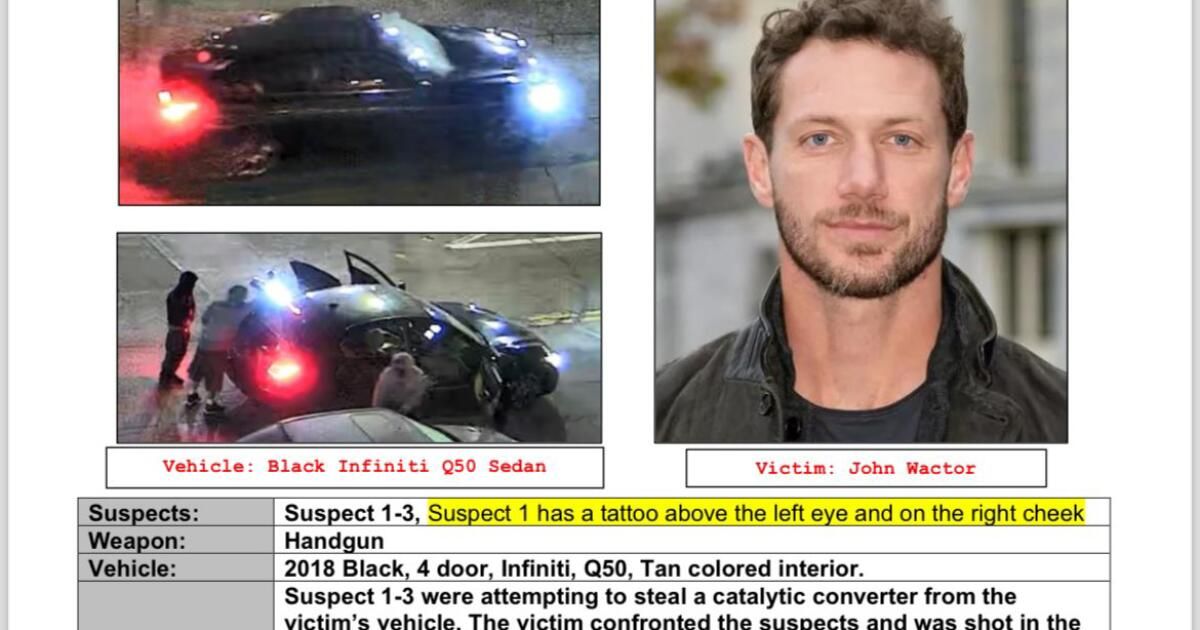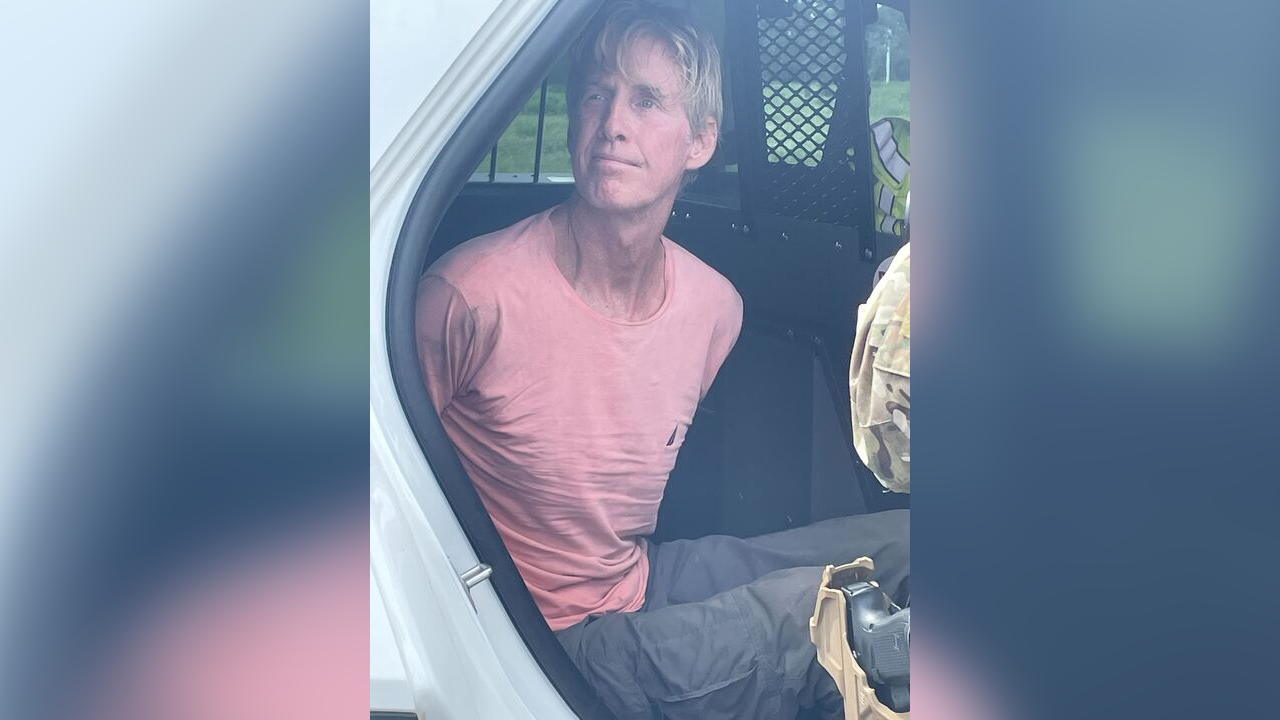An investigation into the fatal shooting of “General Hospital” actor Johnny Wactor in downtown Los Angeles is focusing on gang members linked to catalytic converter thefts, law enforcement sources familiar with the probe told The Times.
After reviewing video and interviewing witnesses, Los Angeles Police Department homicide detectives have zeroed in on the distinctive facial tattoos of the shooter, one of three men who authorities say carjacked Wactor on Hope Street near Pico Boulevard to steal his catalytic converter before shooting and killing him on May 25.
Investigators have released grainy images of the suspects and their stolen getaway vehicle in hopes of gathering more evidence that will confirm the men's identities, according to law enforcement sources who are not authorized to discuss the investigation.
Wactor had just finished a late-night shift as a bartender at the nearby Level 8 bar when he and co-worker Anita Joy were walking to their car and interrupted the robbers.
Wactor initially thought his car was being towed, Joy said. After realizing that wasn’t the case, he asked the men to leave, showing his open hands to indicate he was not a threat. However, he was shot at about 3:20 a.m., he said, at point-blank range. A security guard at the bar said he found Joy with Wactor, who was mortally wounded, and called 911.
After the shooting, the suspects fled north on Hope Street in a stolen getaway vehicle described as a black, four-door 2018 Infiniti Q50 with a tan interior, police said.
According to detectives, the man who shot Wactor has a tattoo above his left eye and another on his right cheek.
On Sunday, police released grainy security footage of the three suspects and their getaway car driving down the street.
Police attempted to take fingerprints from Wactor's car and link the crime to any nearby catalytic converter thefts.
Thieves target catalytic converters because they contain precious metals, such as rhodium, palladium and platinum. They can be sold for hundreds of dollars to auto parts suppliers or scrap yards, where they can be melted down and the valuable metals extracted.
Catalytic converter thefts have skyrocketed in California during the COVID-19 pandemic. That led to new state laws prohibiting recyclers from purchasing the parts from anyone other than the legal owner of the vehicle or a licensed dealer. Penalties have been increased for buyers who fail to certify that a catalytic converter has not been stolen.
Anyone with information regarding the shooting is asked to call Central Bureau homicide detectives at (213) 996-4143 or (213) 996-4173.












